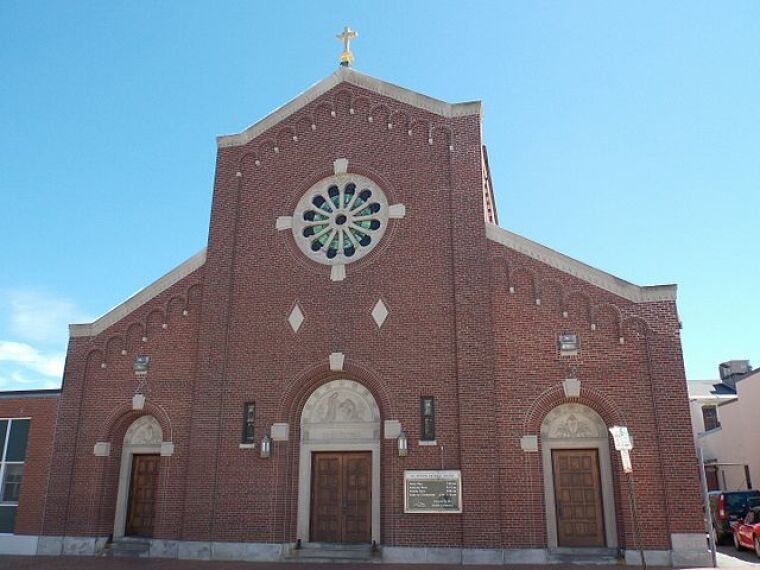Catholic Diocese of Portland severs relationship with Maine Council of churches over LGBT advocacy

The Roman Catholic Diocese of Portland has announced that it will be leaving the Maine Council of Churches due to concerns about the council's stance on LGBT advocacy and other issues.
According to Religion News Service, the diocese decided to withdraw its membership after the council adopted a policy that would allow members to determine its public positions by a majority vote. Before the adoption of the policy, the council would only take a public stance on a specific issue after a unanimous vote from its eight denominational members.
"Our continuing participation could result in me advocating for two different, and even contradictory, positions," Portland Bishop Robert Deeley said in an open letter obtained by the Portland Press Herald.
"What I advocate for cannot be simply determined by a majority vote. It is expected that my advocacy is grounded in the teachings of the Church. Any other position would be contrary to my responsibility as the bishop of Portland," he added.
Rev. Jane Field, executive director of the council, pointed out that Protestant denominations in the council have become more affirming of LGBT members of their congregation, while Roman Catholic still upholds the teaching that homosexuality is "intrinsically disordered."
"Remaining silent on issues, especially related to LGBTQ justice and equality, wasn't tenable for all of our other seven denominations," Fields said, as reported by Religion News Service.
"It was enough of a discomfort that it needed to be addressed openly. It wasn't healthy to be silent anymore," she added.
Field said that council members considered the option of issuing a minority stance in cases when not all members agree with the council's stance, but the diocese decided to leave instead.
She noted that the departure of the diocese, which has been a member of the council since the 1980s, is "fairly significant," noting that participation of Roman Catholic dioceses in a council of churches has been quite rare.
The diocese is expected to officially depart from the council on June 30. Deely vowed to continue the diocese's efforts to "serve the needs of the poor, the disadvantaged and the migrants among us" despite the decision to leave the council.
Other members in the council include the United Church of Christ, Unitarian Universalists Association of Congregations, the Evangelical Lutheran Church in America, The Episcopal Diocese of Maine and The New England Conference of the United Methodist Church, according to The Christian Post.
Field pointed out that other Catholic dioceses have also recently withdrawn membership from state councils in New Hampshire and North Carolina.
 Christians don't have to affirm transgenderism, but they can’t express that view at work: tribunal
Christians don't have to affirm transgenderism, but they can’t express that view at work: tribunal Archaeology discovery: Medieval Christian prayer beads found on Holy Island
Archaeology discovery: Medieval Christian prayer beads found on Holy Island Presbyterian Church in America votes to leave National Association of Evangelicals
Presbyterian Church in America votes to leave National Association of Evangelicals Over 50 killed in 'vile and satanic' attack at Nigerian church on Pentecost Sunday
Over 50 killed in 'vile and satanic' attack at Nigerian church on Pentecost Sunday Ukrainian Orthodox Church severs ties with Moscow over Patriarch Kirill's support for Putin's war
Ukrainian Orthodox Church severs ties with Moscow over Patriarch Kirill's support for Putin's war Islamic State kills 20 Nigerian Christians as revenge for US airstrike
Islamic State kills 20 Nigerian Christians as revenge for US airstrike Man who served 33 years in prison for murder leads inmates to Christ
Man who served 33 years in prison for murder leads inmates to Christ


 Nigerian student beaten to death, body burned over ‘blasphemous’ WhatsApp message
Nigerian student beaten to death, body burned over ‘blasphemous’ WhatsApp message 'A new low': World reacts after Hong Kong arrests 90-year-old Cardinal Joseph Zen
'A new low': World reacts after Hong Kong arrests 90-year-old Cardinal Joseph Zen Iran sentences Christian man to 10 years in prison for hosting house church worship gathering
Iran sentences Christian man to 10 years in prison for hosting house church worship gathering French Guyana: Pastor shot dead, church set on fire after meeting delegation of Evangelicals
French Guyana: Pastor shot dead, church set on fire after meeting delegation of Evangelicals ‘Talking Jesus’ report finds only 6% of UK adults identify as practicing Christians
‘Talking Jesus’ report finds only 6% of UK adults identify as practicing Christians Mission Eurasia ministry center blown up in Ukraine, hundreds of Bibles destroyed: 'God will provide'
Mission Eurasia ministry center blown up in Ukraine, hundreds of Bibles destroyed: 'God will provide' Church holds service for first time after ISIS desecrated it 8 years ago
Church holds service for first time after ISIS desecrated it 8 years ago Burger King apologizes for 'offensive campaign' using Jesus' words at the Last Supper
Burger King apologizes for 'offensive campaign' using Jesus' words at the Last Supper Uganda: Muslims abduct teacher, burn him inside mosque for praying in Christ’s name
Uganda: Muslims abduct teacher, burn him inside mosque for praying in Christ’s name